- Academics+
- Colleges & Institutes
- Undergraduate
- Graduate
- International Education
- FACULTY LISTINGS/SUPERVISORS INFORMATION
- College of Architecture and Civil Engineering
- College of Architecture and Urban Planning (CAUP)
- College of Art and Design
- College of Chemistry and Life Science
- College of Computer Science
- College of Economics and Management
- College of Environmental Science and Engineering
- College of Foreign Languages
- College of Marxism
- College of Materials Science and Engineering
- College of Mechanical and Energy Engineering
- College of Metropolitan Transportation
- School of Information Science and Technology
- School of Mathematics Statistics and Mechanics
- School of Physics and Optoelectronic Engineering
- School of Sociology
- Admission+
- Research+
- Global+
- Life @ BJUT+
- About+
On April 27, the Forum on Promoting University Technology Transfer of the ZGC International Technology Trade Fair under the 2024 Annual Conference of ZGC Forum opened at BJUT. It is the first time that the conference has set upsuch a forum. With the theme of "Integrating Education, Technology and Talents to Boost the New Productive Forces and the Nation's Development" and the main topic of "The Role and Challenges of Universities in Developing New Productive Forces", the forum brought together more than 100 universities, more than 100 companies and hundreds of innovative industrial partners. It also included the technological achievements of various universities in the six key areas of future information technology, health, manufacturing, energy, and materials and space.
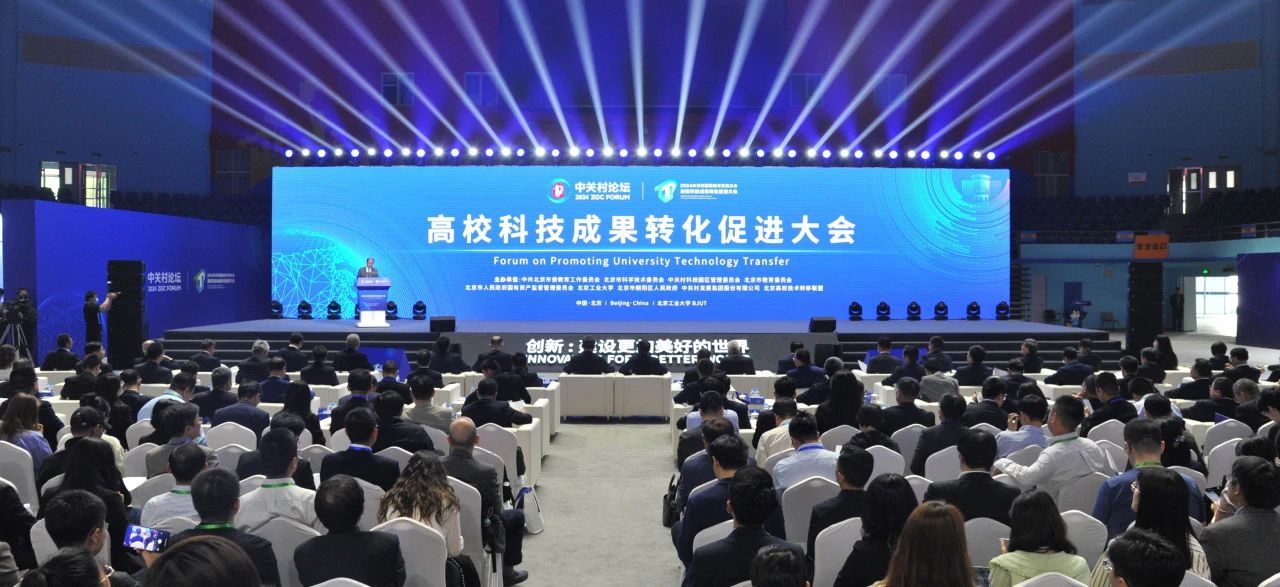
Attending the opening ceremony were: Shan Zhongde, Vice Minister of the Ministry of Industry and Information Technology, and Member of the Chinese Academy of Engineering; Shu Wei, Deputy Secretary of the CPC Leadership Group, full-time Vice President and Executive Secretary of the Secretariat of the China Association for Science and Technology; Ma Jun, Vice Mayor of the Beijing Municipal Government; Lu Pengqi, Deputy Commissioner of the China National Intellectual Property Administration; Zhang Guohui, first-level Inspector of the Department of Science, Technology and Information Technology of the Ministry of Education; Qin Haoyuan, Deputy Director-General of the Department of Research Commercialization and Regional Innovation of the Ministry of Science and Technology; Dr. O. S. Ganiyusufoglu, Academician of German National Academy of Science and Engineering, dozens of academicians and experts at home and abroad, as well as nearly 300 leaders andguests from universities, enterprises, municipal offices and bureaus, local governments, associations, media and other sectors of society. Jiang Zeting, Secretary of CPC BJUT Committee, delivered a welcome speech, and Nie Zuoren, President of BJUT, and Member of the Chinese Academy of Engineering, presided over the opening ceremony.

Shan Zhongde, on behalf of the Ministry of Industry and Information Technology, extended warm congratulations on the success of the forum. He stressed that in order to accelerate technological innovation and achievement transfer, universities, research institutes, enterprises and governments need to strengthen collaboration to produce strong synergy. He expressed the hope that all parties will join hands to promote the industrialization of higher level and higher quality technological achievements, and make greater contributions to training high-level talents, promoting self-reliance in high-level technology, in this way accelerating the building of a modern industrial system.

Shu Wei extended warm congratulations on the successful convening of the forum, on behalf of the China Association for Science and Technology. He said that by hosting the forum, BJUT has set up a display and exchange platform for universities across the country. He hoped that the forum would be an opportunity to allow more scientific and technological achievements to serve both the economic and social development of the broad masses of the People. He stated that The China Association for Science and Technology will deepen its close cooperation with universities, to build a broader platform and provide more practical services to help scientific and technological workers to overcome difficulties and promote technology transfer.
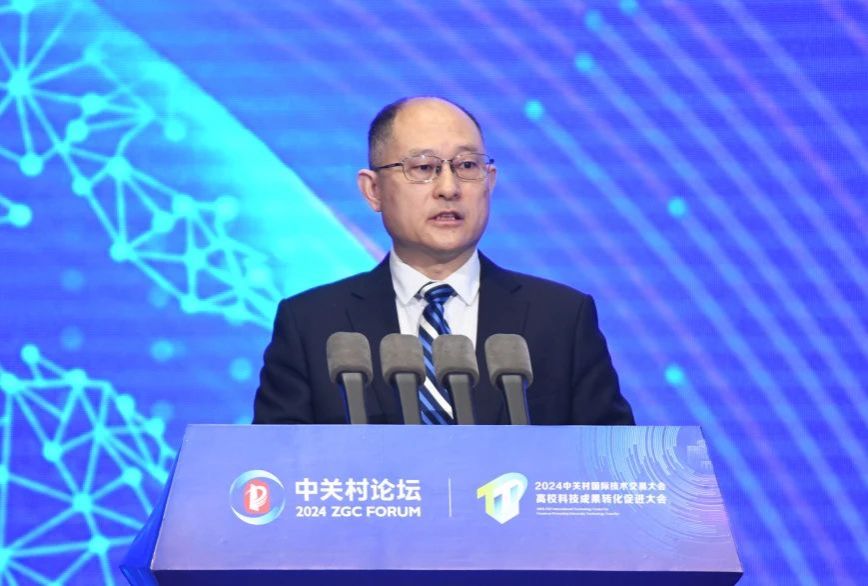
Lu Pengqi, on behalf of the China National Intellectual Property Administration, extended his warm congratulations on the successful convening of the forum. He pointed out that intellectual property is an important support for promoting technology transferand fostering and developing new productive forces. He stated that the introduction by universities of innovative resources and achievements into the development of traditional, emerging and future industries is inseparable from the supportand help of patent transformation and application. He hoped that all parties will work together to explore new ways to achieve university technology transfer.
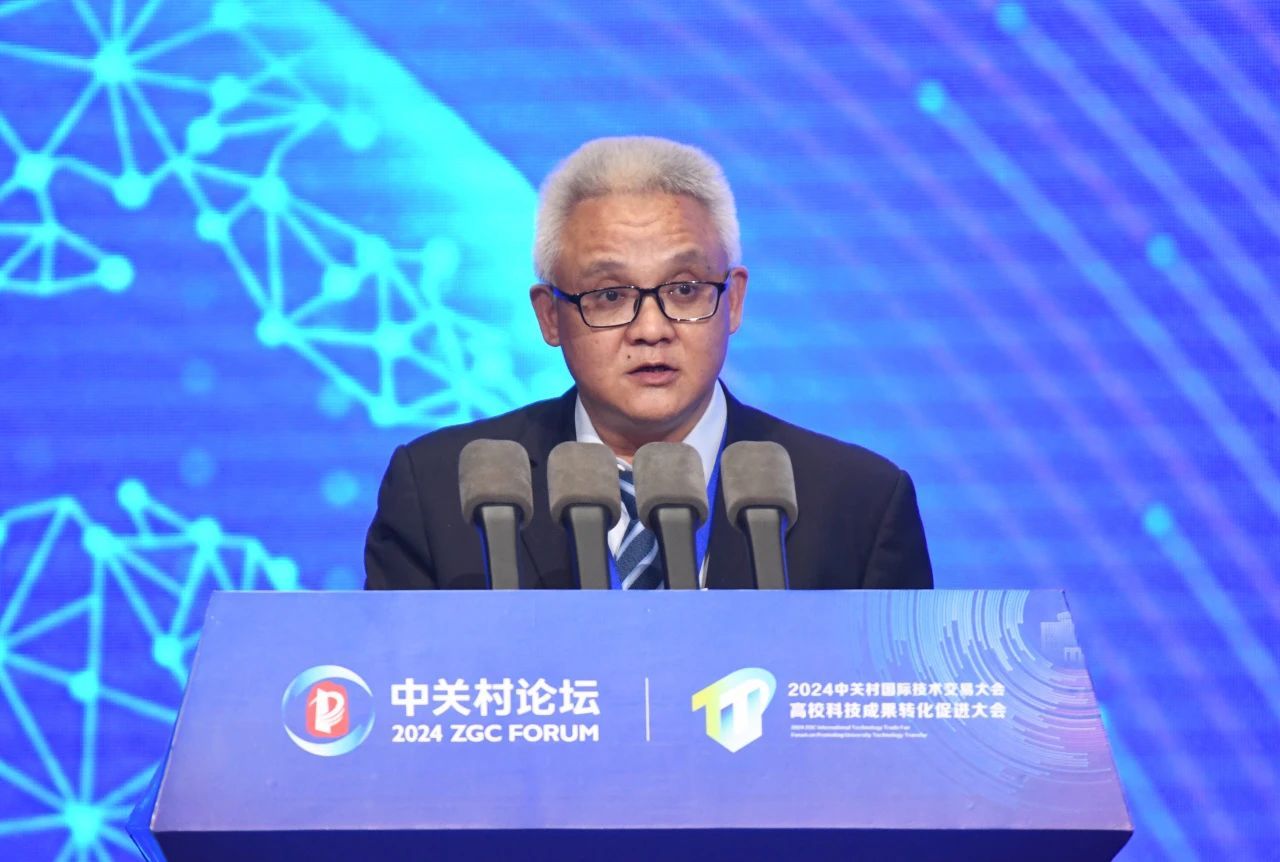
Ma Jun, on behalf of the Beijing Municipal Government, expressed his heartfelt thanks to all the friends who have long cared for and supported the construction of Beijing International Science and Technology Innovation Center. He pointed out that as an important juncture of the coordinated development of education, science and technology, and human resources, universities should, with a stronger sense of their historical responsibility, promote the integration of scientific and technological innovation resources, improve the ability and level oftechnology transfer. He said that Beijing will continue to provide all-round support for university and enterprise technology transfer, further integrating the innovation chain, the industrial chain, the capital chain and the talent chain, thereby facilitating the flow of innovation factors contributing to the development of new productive forces.
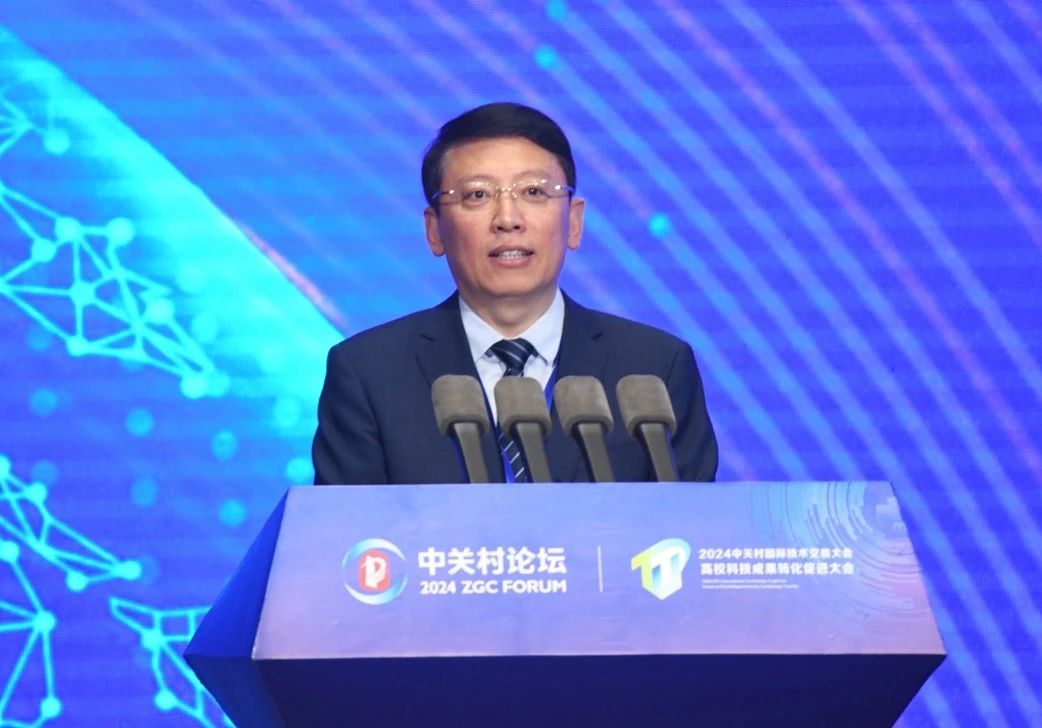
Jiang Zeting delivered the welcoming speech. On behalf of the organizers, he extended the warmest welcome to all the leaders and guests, and gave his most heartfelt thanks to the people from all walks of life who have long cared for, and supported, university technology transfer, and the development of BJUT. He said, "Today, many excellent scientific research results, innovation mechanisms and cases for promoting technology transfer from a 100 universities across the country will be shared, discussed and implemented.”He believed that through their joint efforts, they would surely make the forum a highlight of the ZGC Forum, a bridge for university technology transfer, and a high point for the promotion of new productive forces.
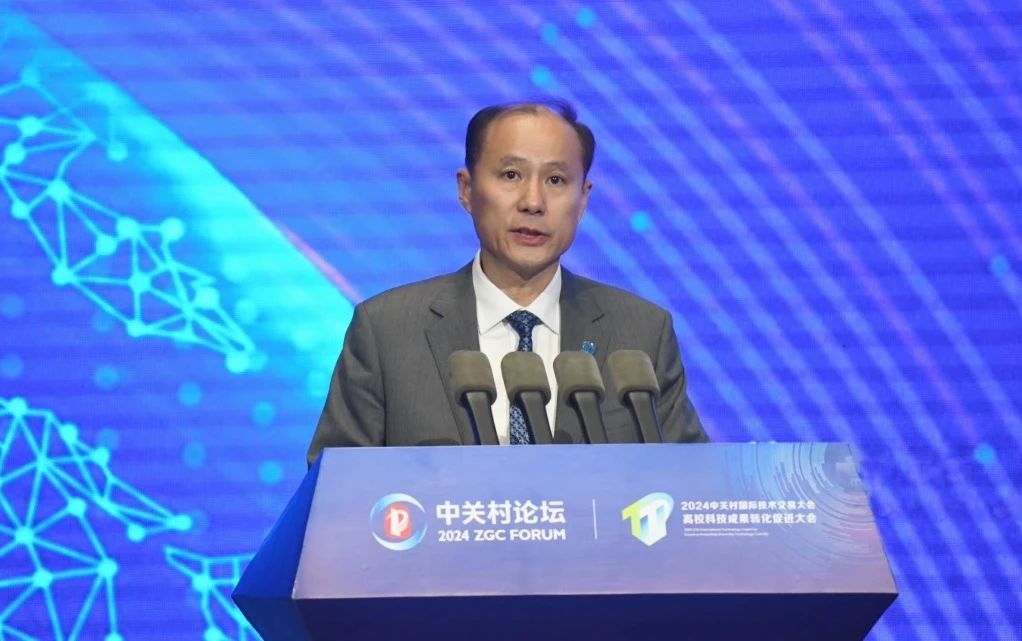
Nie Zuoren pointed out BJUT will adhere to the original mission of "Serving the Capital City and the Country with Science and Technology" and continue to take the lead and set an example in speeding up the transformation of scientific and technological achievements into new productive forces, showing its due responsibility and greater achievements.The University will make new and greater contributions to accelerating the construction of a country powerful in science and technology, and the realization of its self-reliance in high-level science and technology.



The participating leaders and guests jointly released the "Innovation Mechanism of University Technology Transfer", "Excellent Cases of University Technology Transfer", and "Selection ofScientificResearch Achievements of 100 Universities"; and jointly inaugurated the Beijing Shan-He-Wan-Gu Innovation College.
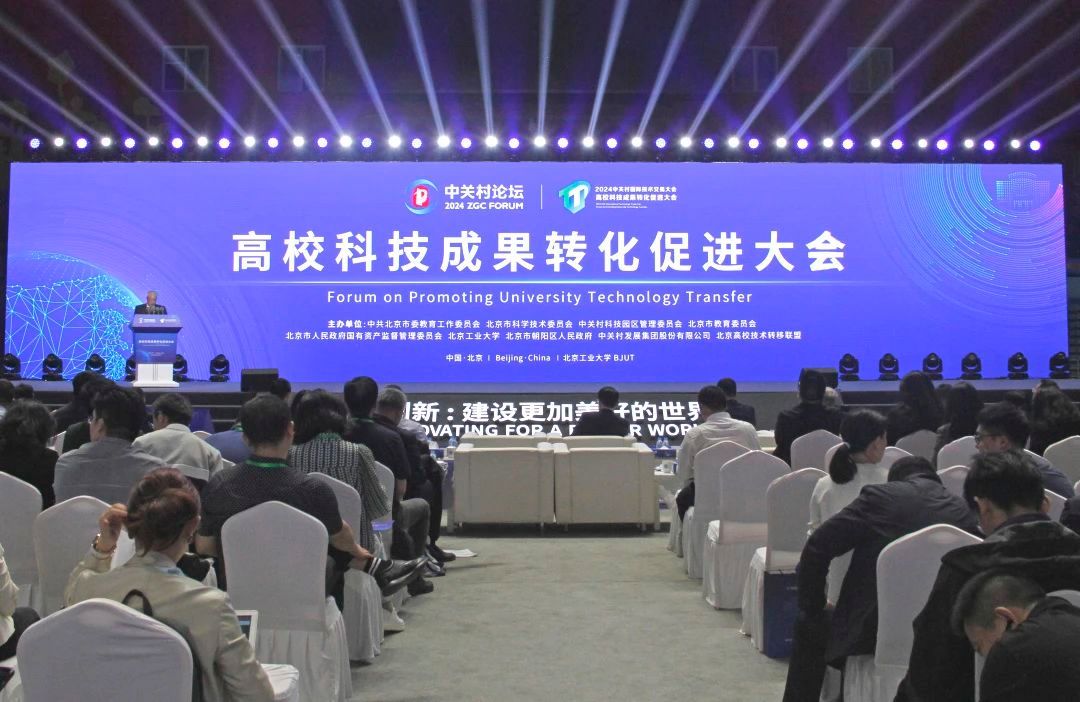
Liu Hui, Deputy Director of the Beijing Municipal Science & Technology Commission and ZGC Administrative Committee, presided over the keynote speech session.
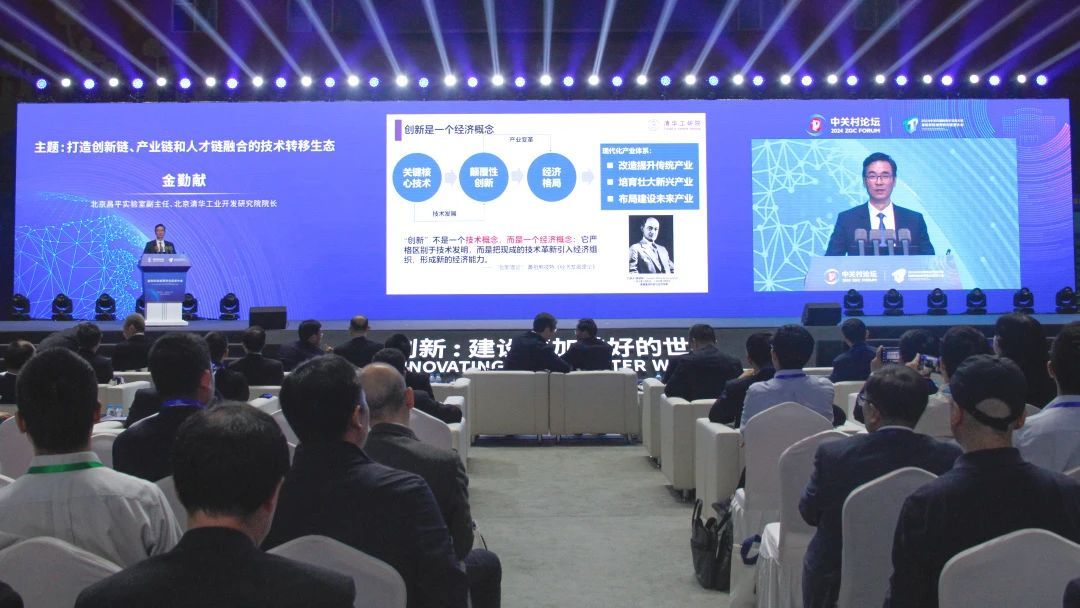
Jin Qinxian, Deputy Director of the Beijing Changping Laboratory and President of Beijing Tsinghua Industrial R&D Institute, delivered a report entitled "Creating an Ecosystem for Technology Transfer: Integrating Innovation, Industrial, and Talent Chains", pointing out that key technological innovation is the core mission of universities; that technology transferis primarily to promote economic development; and that many scientific and technological achievements in universities are at the forefront of innovation. He stated that it is necessary to innovate according to the characteristics of the Chinese market, to build an innovation chain around the industrial chain, and to promote the better integration of scientific and technological achievements of universities with industry.
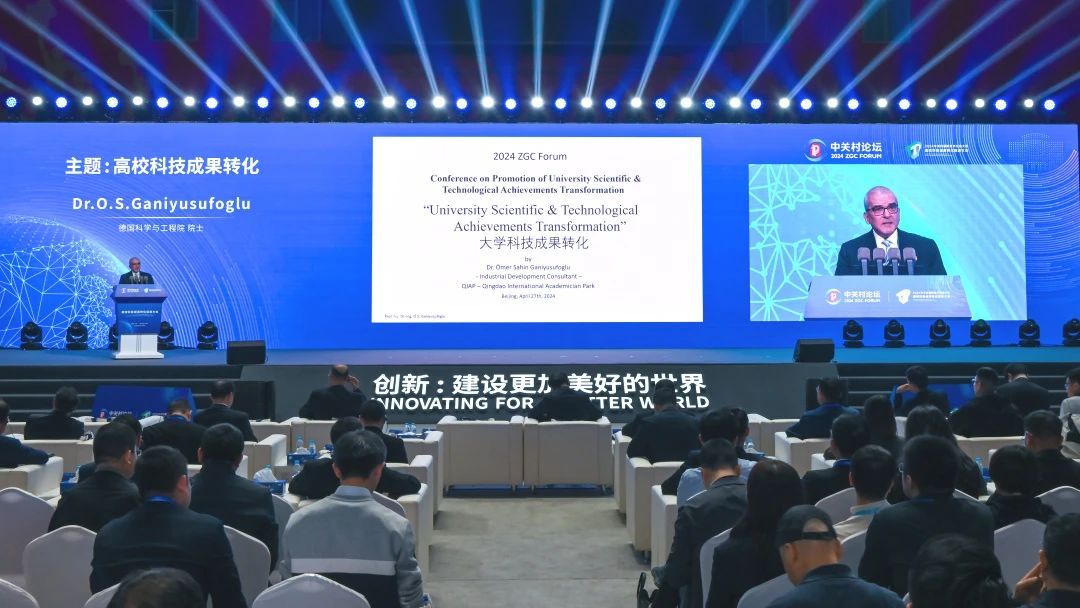
Dr. O. S. Ganiyusufoglu, Academician of German National Academy of Science and Engineering, delivered a report entitled "University Technology Transfer". The report pointed out that the success of its technology transfer, lying in, on the one hand, the transformation of academic achievements intoindustry, and on the other hand, the cooperation of the government, universities and associations. The government provides research funds, universities produce scientific and technological achievements, and associations promote the transformation of scientific research achievements into new business forms and realize industrialized development.
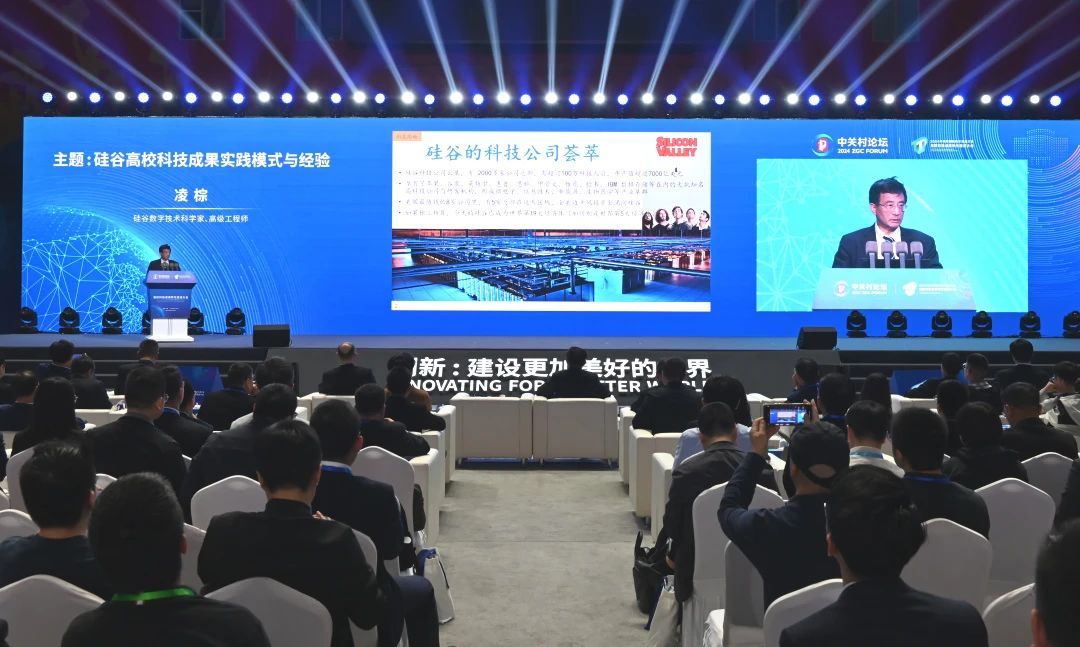
Ling Zong, an expert on digital technology in Silicon Valley, made a report entitled "Models and Experiences of Scientific and Technological Achievements in Universities in Silicon Valley", which introduced the situation of, and lessons from, university technology transferin Silicon Valley, covering various aspects such as Silicon Valley's general situation, entrepreneurial atmosphere, incentive mechanism, risk assessment, venture capital, legal environment, and management of scientific and technological achievements. He emphasized that in the process of following technological trends, it is necessary to learn to seize the initiative to quickly turn ideas into products.
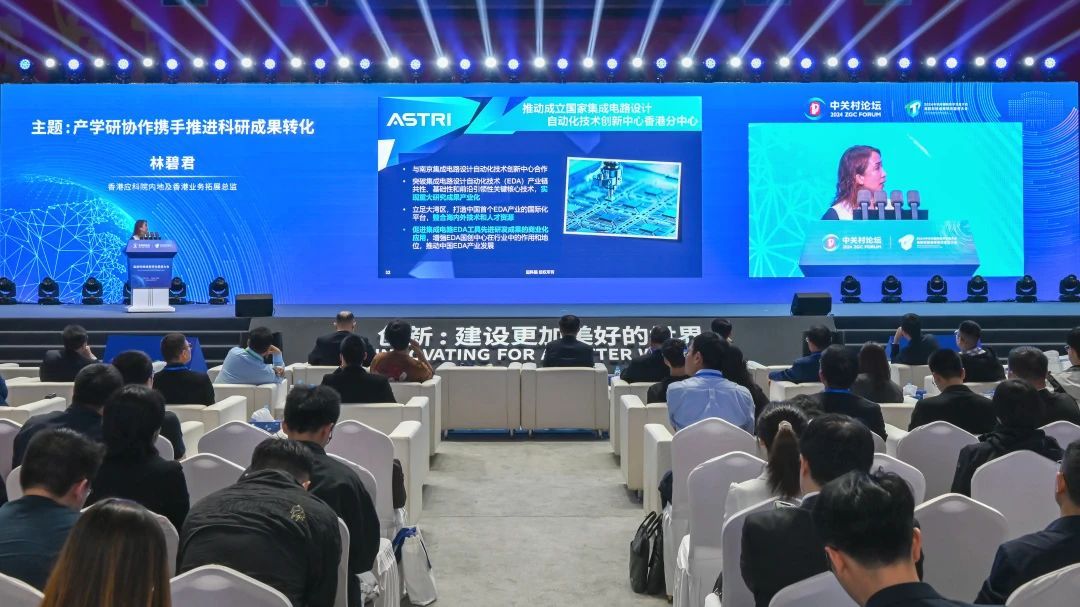
Lin Bijun, Director of Chinese Mainland and Hong Kong Business Development at the Hong Kong Applied Science and Technology Research Institute(ASTRI), gave a report entitled "Industry-Academia-Research Collaboration for Promotion of Transfer of Research Outcomes", introducing the general situation of ASTRI and the universities' cooperation. The report pointed out that the technical research field that ASTRI engages in is very much in line with the future industrial direction of Beijing, and that it hopes to accelerate the empowerment of key industries and fields by strengthening collaborative innovation between Beijing and Hong Kong, so as to promote the high-quality development of China's economy.
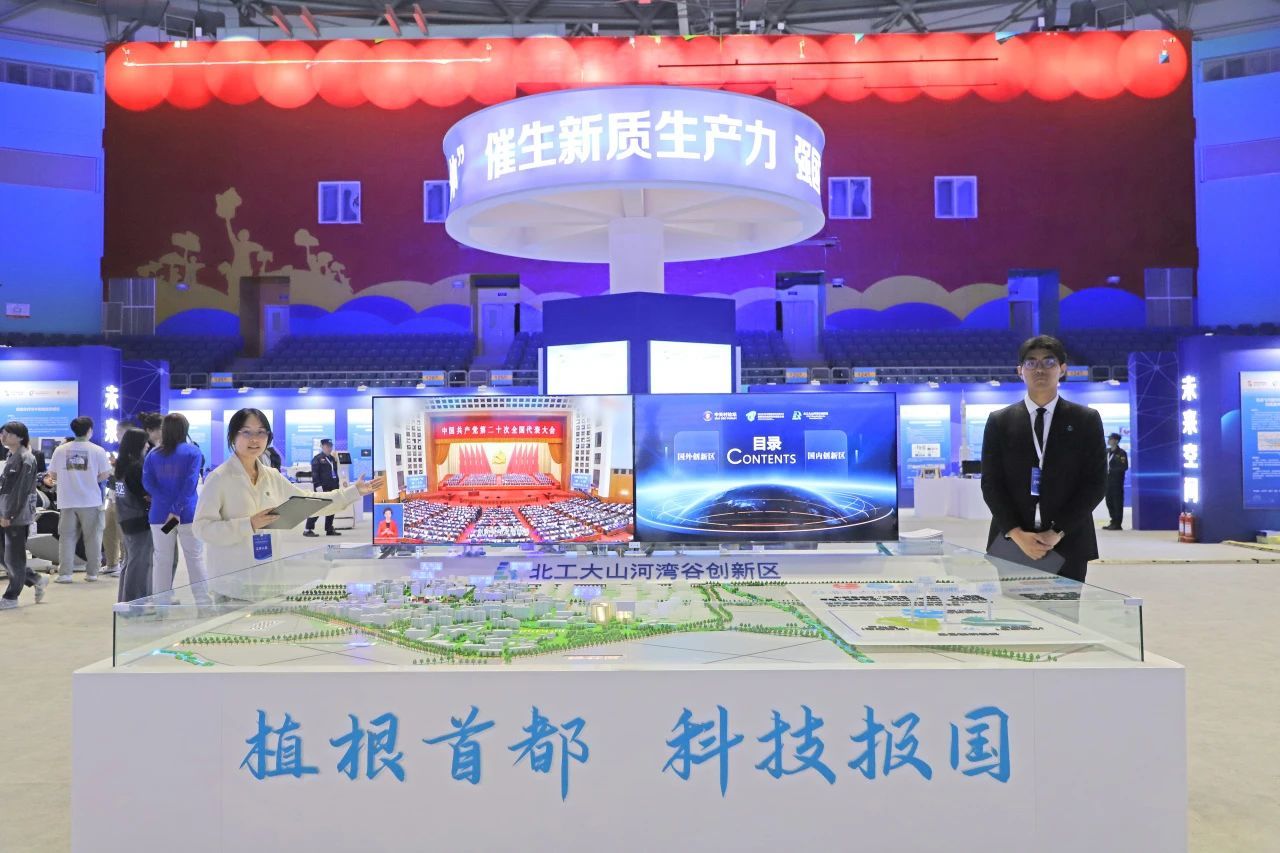
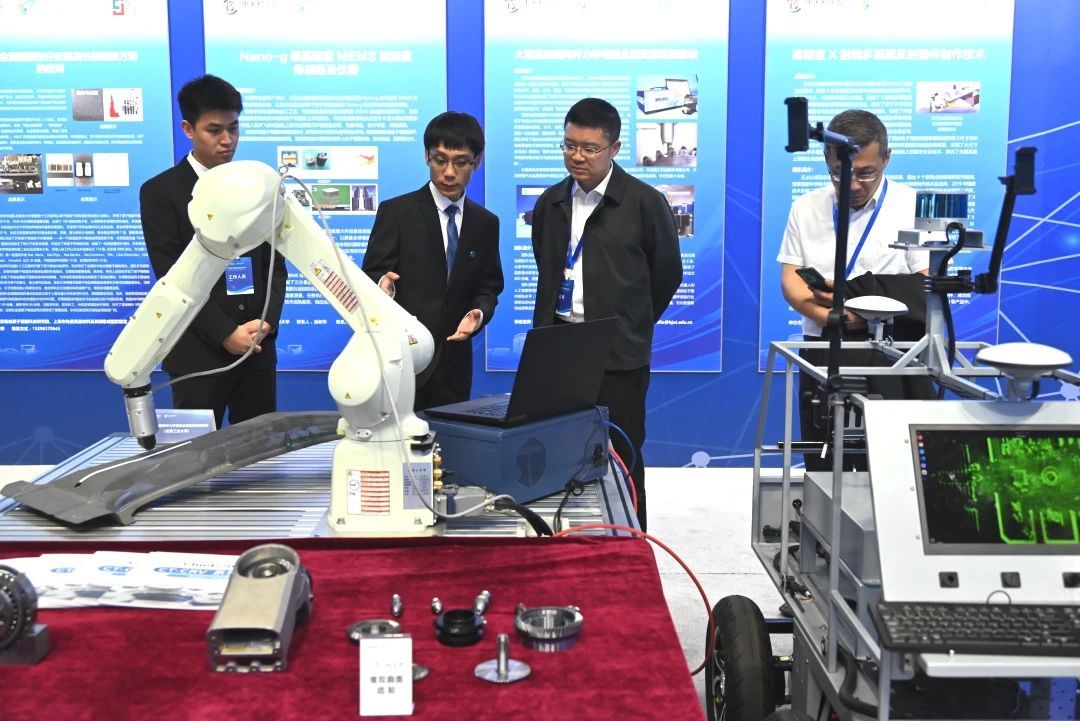
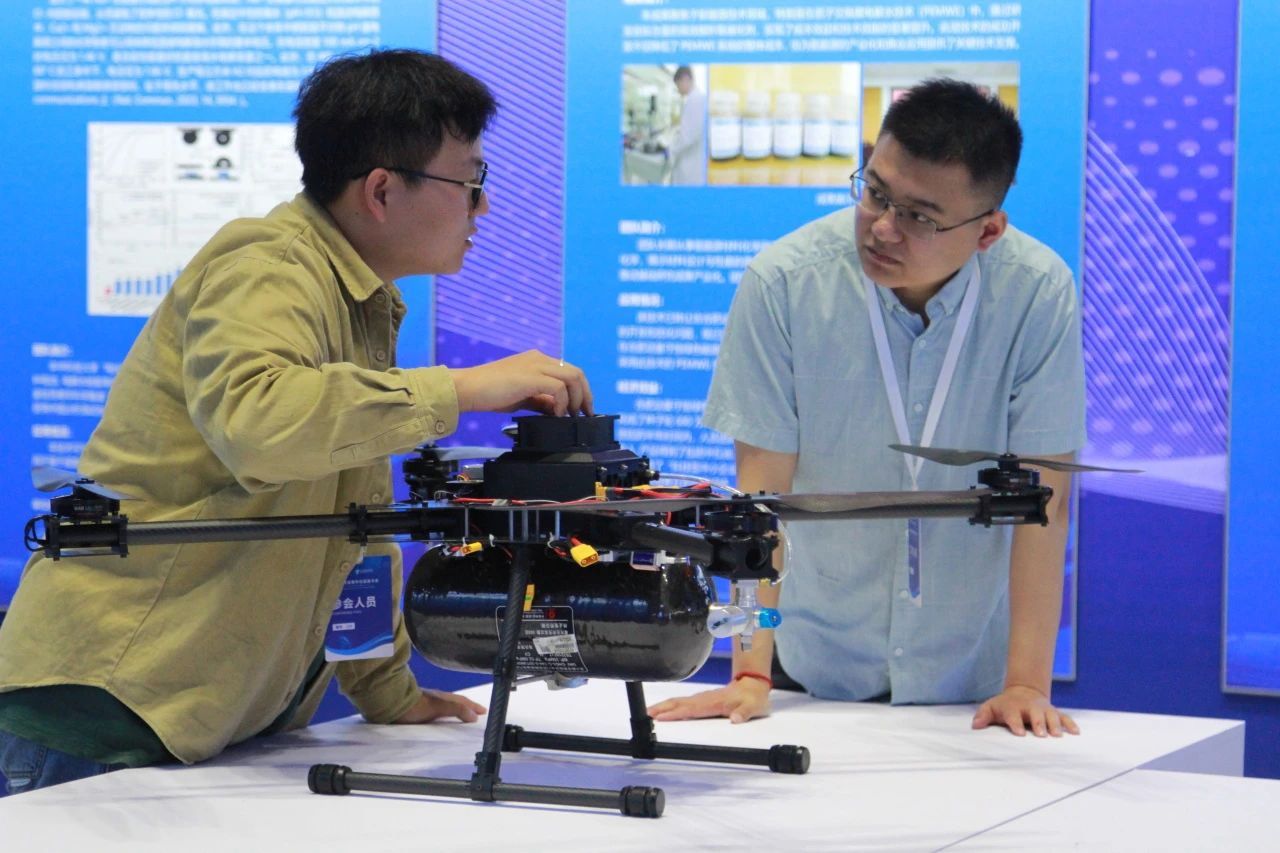
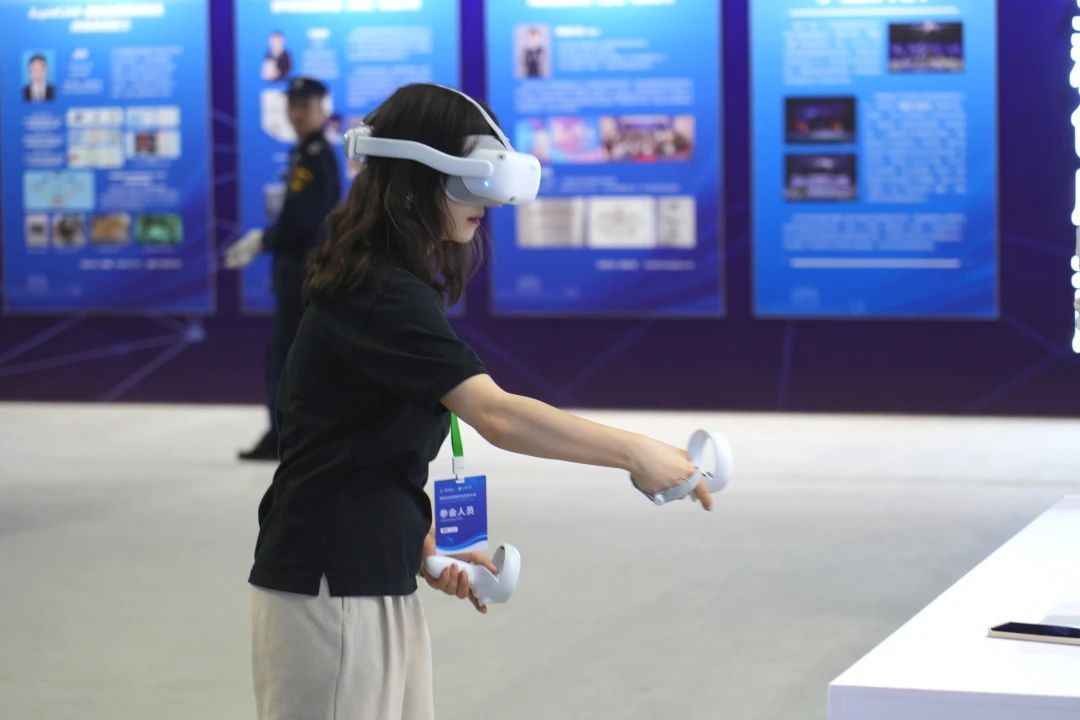
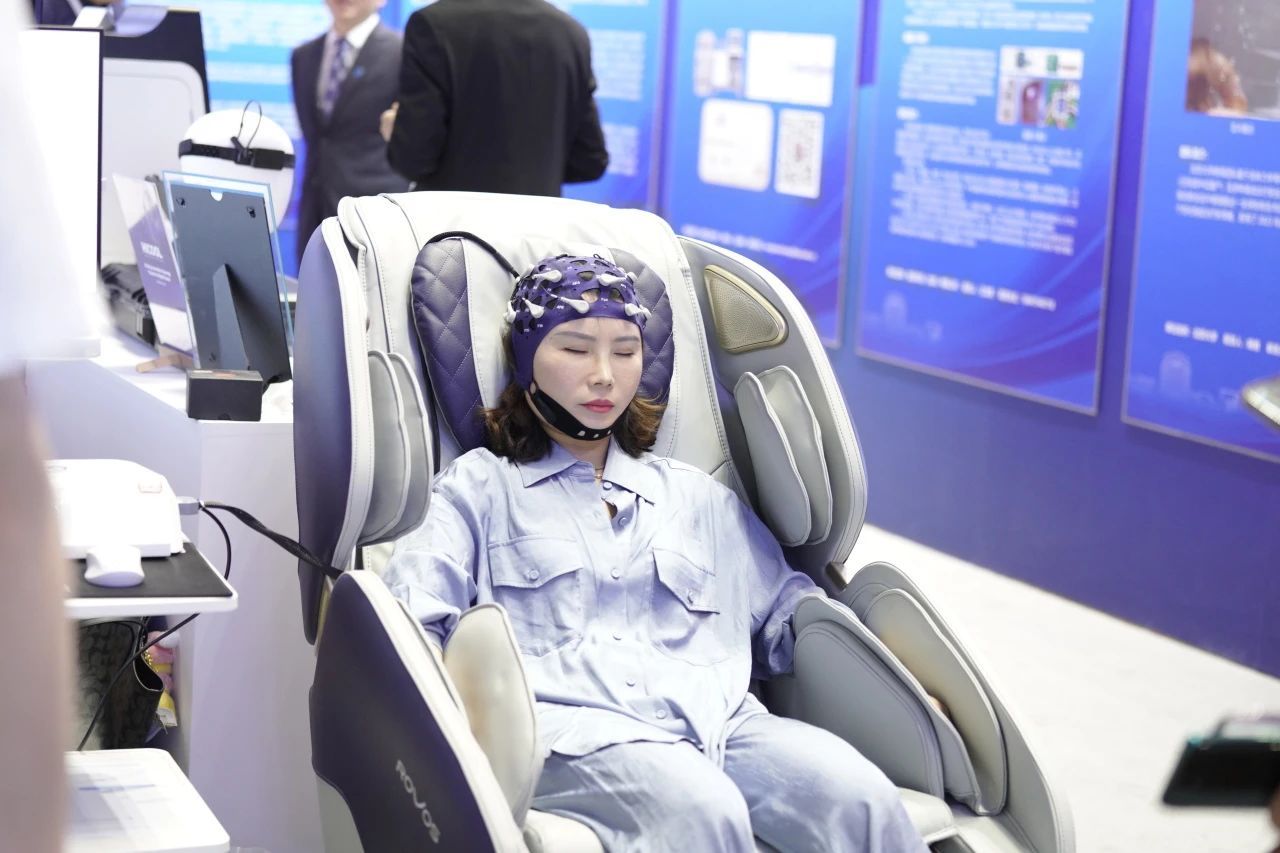
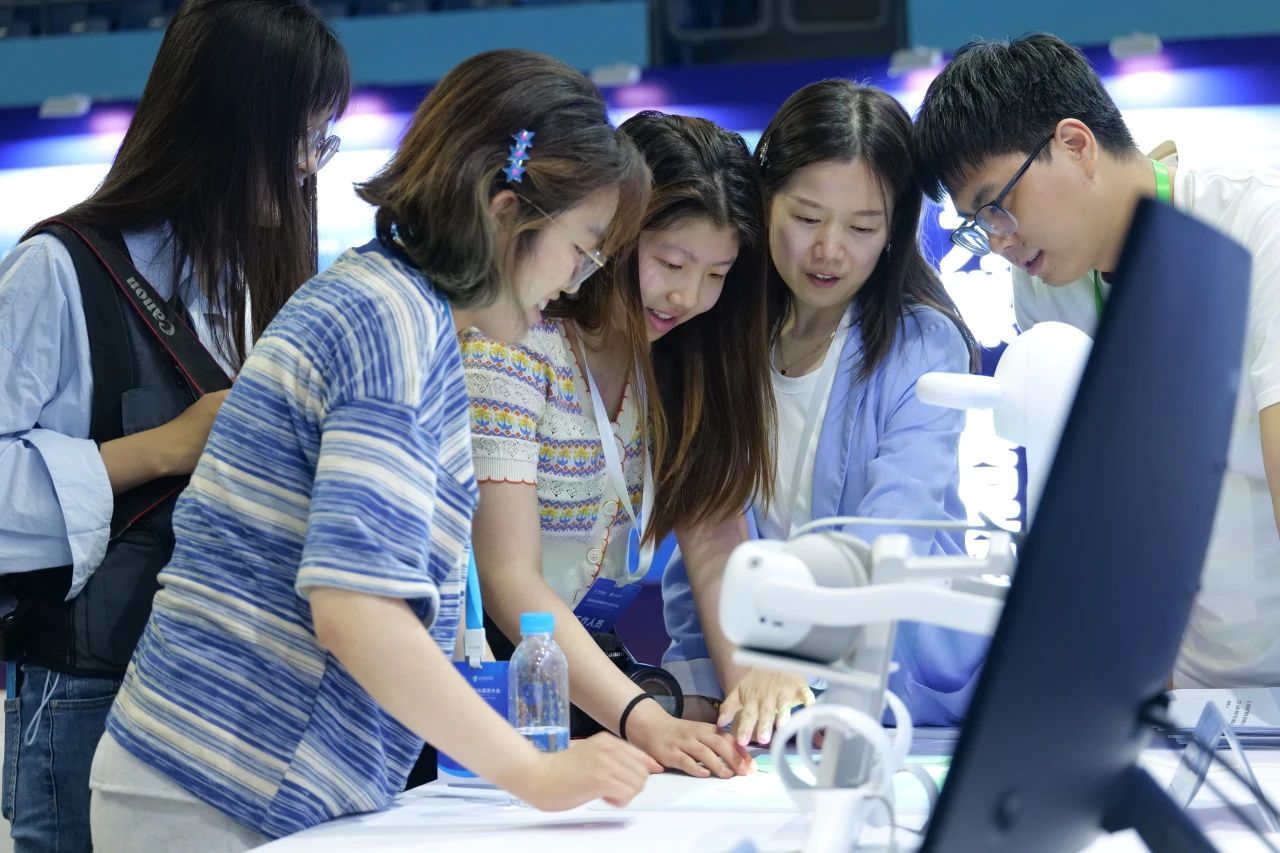
During the forum, leaders of more than 100 universities, science and technology entrepreneurs, and heads of government departments gathered together. Through keynote speeches, theme forums and other forms, they exchanged ideas and discussed the new model of achieving the deep integration of universities and local enterprises to promote technology transfer. Additionally, representatives of universities with specialist skills, and track records of positive results, in technology transfer presented their achievements in high-level science and technology at the forum through thematic exhibitions, on-site exhibitions and in other ways. Within the context of this large-scale and high-intensity gathering of innovative elements, they promoted the concept of "direct dialogue" between technology, capital and market; many districts in Beijing issued relevant policies to promote technology transfer; for universities across the country, a section on science and innovation for students was created, illustrating the intensity of the country's universities cultivating top-notch innovative talents for the development of new productive forces.




